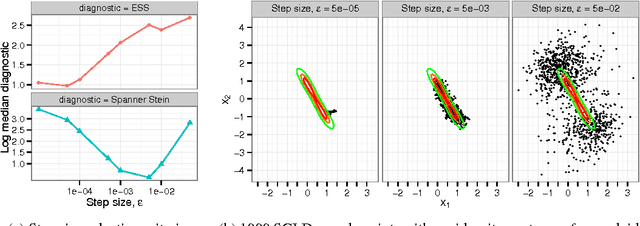Measuring Sample Quality with Stein's Method
Paper and Code
Mar 06, 2017



To improve the efficiency of Monte Carlo estimation, practitioners are turning to biased Markov chain Monte Carlo procedures that trade off asymptotic exactness for computational speed. The reasoning is sound: a reduction in variance due to more rapid sampling can outweigh the bias introduced. However, the inexactness creates new challenges for sampler and parameter selection, since standard measures of sample quality like effective sample size do not account for asymptotic bias. To address these challenges, we introduce a new computable quality measure based on Stein's method that quantifies the maximum discrepancy between sample and target expectations over a large class of test functions. We use our tool to compare exact, biased, and deterministic sample sequences and illustrate applications to hyperparameter selection, convergence rate assessment, and quantifying bias-variance tradeoffs in posterior inference.
 Add to Chrome
Add to Chrome Add to Firefox
Add to Firefox Add to Edge
Add to Edge